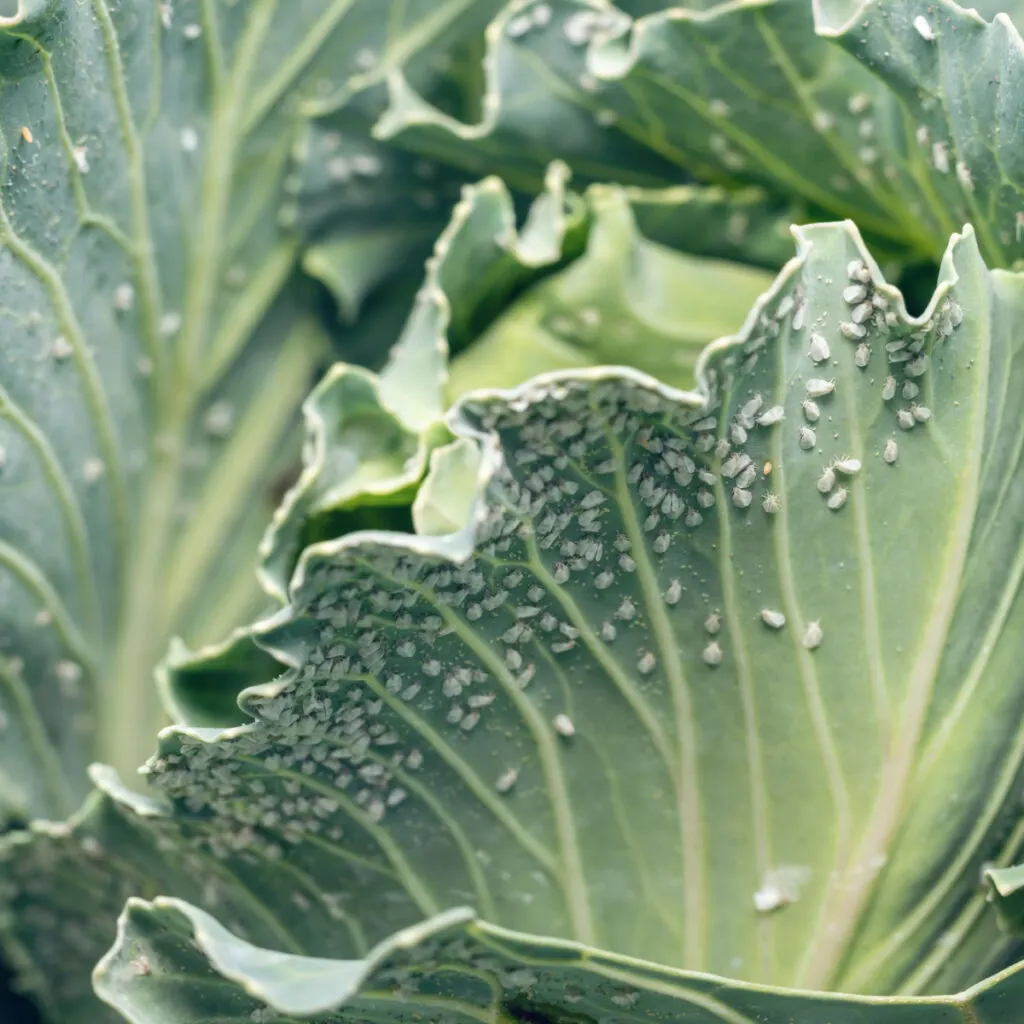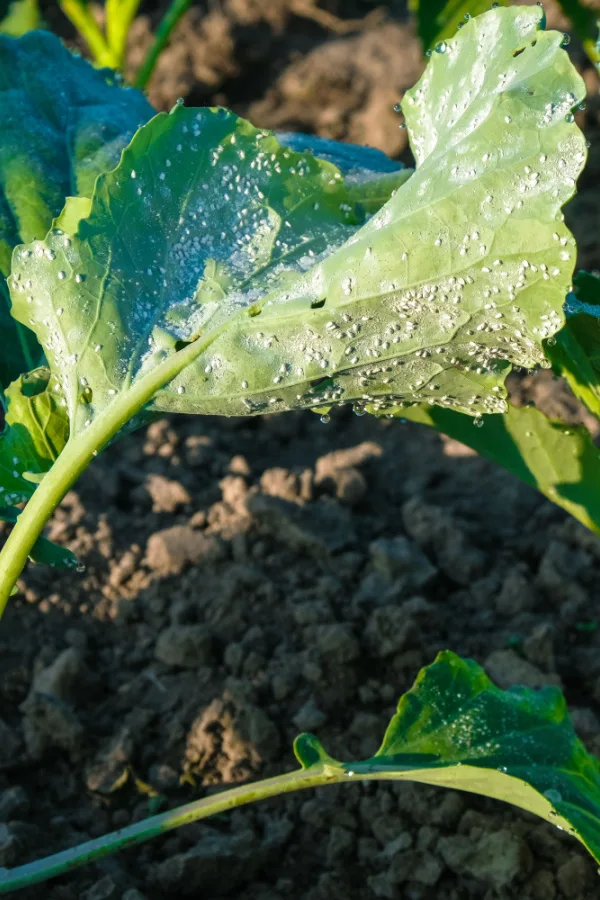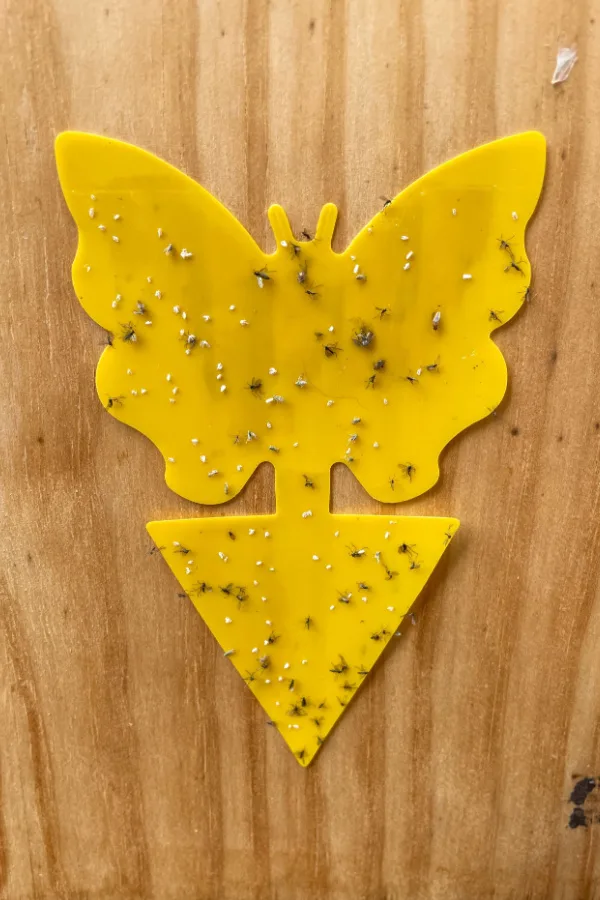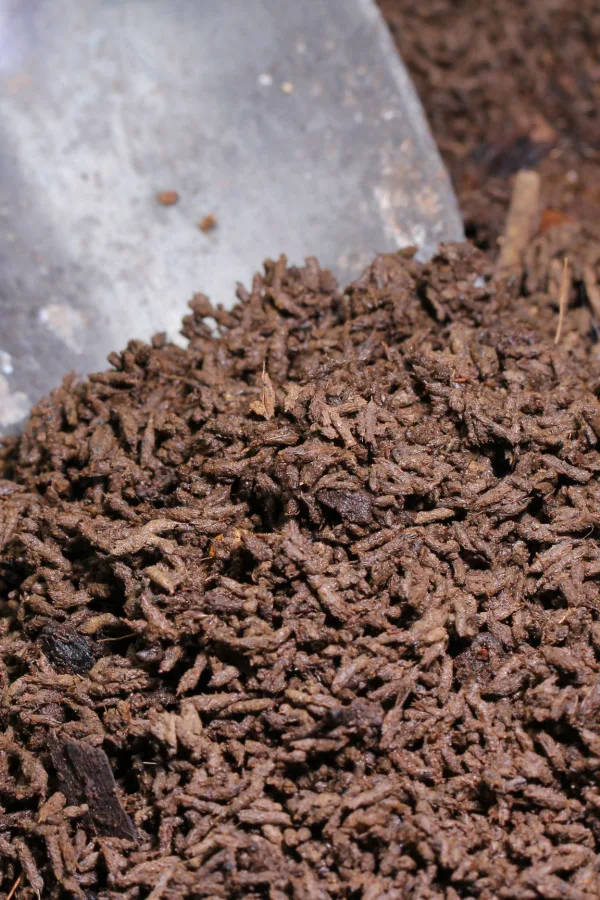Looking for a few natural and highly effective ways to get rid of whiteflies to keep them from ruining your vegetable garden this year?
Whiteflies might be tiny, but they can cause devastating damage to your vegetable plants in no time at all. These sap-sucking, disease-causing winged insects will ruin the foliage of vegetable plants as well as affect their bloom and fruit production.
While you commonly see whiteflies on tomato plants, many other crops in your garden are also susceptible. Plants like beans, bell peppers, cabbages, cucumbers, eggplants, lettuces, okra, potatoes, and squash are all additional common targets of whiteflies.

What makes matters even worse is that whiteflies can multiply quickly, going from egg to adult in just two weeks. And due to the fact that they can fly, what starts out as a tiny infestation on one plant can turn into your entire vegetable garden being infected before know it.
While prevention is the best way to avoid a whitefly problem, there are simple ways to control the tiny pests once they arrive. And even better, you can control them without having to turn to harsh chemicals and sprays around your vegetable plants!
Identifying Whiteflies & Their Damage
Whiteflies are only about 1/12 of an inch in size. They look similar to aphids, which of course can be another devastating pest for vegetable garden growers. (See our article, “How To Keep Aphids Out Of Your Garden”)
Although they may appear similar, there are a few distinct differences between whiteflies and aphids. For starters, most aphids do not have wings. Whiteflies, on the other hand, all have wings and can easily travel from plant to plant and even from crop variety to crop variety with ease.
They are often found on the bottom of plants’ leaves, which makes finding them a bit of an issue for most gardeners. Because of this, unfortunately, the first sign of a whitefly problem is after their damage begins appearing.

Whiteflies also lay their numerous eggs on the underside of the plant’s leaves. After about ten days, those tiny eggs hatch in nymphs. And as soon as they hatch, nymphs immediately begin feasting on the plant’s foliage and sap.
The Devastating Effects Of Whiteflies – How To Get Rid Of Whiteflies In The Vegetable Garden
Whiteflies cause damage to vegetable plants in two different ways. First, they feed on the sap that is contained within the plant’s leaves. As the sap is consumed, the leaves start to turn yellow and curl. Eventually, the leaves and die.
Because of the extensive damage to the foliage, plants will start to weaken from a lack of nutrients. Fewer nutrients equal a reduction of blooms and vegetables being produced. In addition, weaker plants are also more susceptible to diseases and pests.
The second way whiteflies ruin plants is by causing fungal infections. As the whiteflies feed, they excrete what’s called “honeydew.” This sticky, white substance can cause all kinds of issues including black sooty mold.

Honeydew, due to its sappy nature also attracts ants in droves. In fact, if you start to see an increase in ants around your plants, it can be a sign that whiteflies are multiplying and mounting an attack.
One thing is for sure, the sooner you can identify a whitefly infestation in your vegetable garden, the better. With that in mind, here is a look at how a few of the best natural methods to rid your plants of whiteflies – and how to keep them from coming back too!
3 Great Ways To Get Rid Of Whiteflies In The Vegetable Garden – Naturally!
Neem Oil Spray
Neem oil is an excellent, all-natural product that can be used to get rid of and prevent many different garden pests, including white flies. The best part is that neem oil not only eliminates their larvae and eggs but sends the adults packing as well.

To make your own neem oil spray, mix four teaspoons of 100% pure, cold compressed neem oil with 1 gallon of warm water. Add in a few drops of liquid dish soap to help the solution bind to the plant’s foliage better. (Affiliate Link: Pure Bliss Pure Neem Oil)
Next, add the solution to a spray bottle or pump sprayer and shake well. Be sure to spray both the tops and bottoms of the plant’s leaves to ensure you are soaking the eggs as well as the adults. It may take a few daily applications before all the whiteflies disappear, but neem oil will do the trick!
Soap & Water
If time is of the essence and you don’t have any neem oil around, you can use a simple soap and water mixture as an effective control against whiteflies. Not only is this the easiest method, but it is the most economical one as well.
You can create this all-natural pest spray by mixing 4 teaspoons of dish soap with one gallon of warm water. Add to a handheld or pump sprayer and spray your plants, being sure to soak all sides of the plant’s foliage with this mixture. Makes sure to hit the undersides of the leaves where they like to live most.
Any whiteflies that come into contact with the soapy mixture will be killed immediately. Repeat this process daily for five to seven days. This is usually more than enough to get rid of a whitefly population, although for serious infestation, it may take additional treatments.
Non-Toxic Sticky Traps
Sticky traps are another great non-toxic option that work well with little effort. In fact, all you need to do is place them near your plants and let them do the work for you!

While sticky traps won’t do anything for killing the eggs or the smaller nymphs, the traps are effective in eliminating flying adults and large nymphs. When used in combination with one of the above spraying methods, the 1-2 punch can make quick work of even the largest infestations.
Yellow-colored sticky traps work best for attracting whiteflies. To use, simply place the traps around the base of your vegetable plants. The tarps also work well to eliminate aphids, gnats, and mosquitoes. Change out full traps with ones as needed. (Affiliate Product Link: 36 Pack Sticky Traps)
Preventing Whiteflies In The First Place
As with any vegetable garden issue or pest, prevention is the real key to success. And when it comes to whiteflies, there are several things gardeners can do to help keep the pests away.
For starters, attracting beneficial insects to your vegetable garden space is a huge way to limit whitefly populations. There are many insects that love to eat whiteflies, including ladybugs, parasitic wasps, dragonflies, and even spiders.
The best way to attract them is to include plants that these beneficial insects love to visit. Plants like marigolds, nasturtiums, and zinnias are all great options.
In addition to attracting good insects, you can also grow plants that whiteflies detest. Basil, chives, marigolds and thyme all help to repel whiteflies due to their strong aroma. Growing these plants around your vegetable garden crops will help to keep your producing plants safe from whiteflies.
Use Worm Castings – A Dual Purpose Fertilizer!
Lastly, adding worm castings around your vegetable plants is a great method for getting rid of whiteflies – and helping your plants grow better! Not only are worm castings amazing fertilizers, but they contain a specific enzyme that whiteflies detest.
When plants contain more of this enzyme (called chitinase), whiteflies will steer clear. And as they absorb the nutrients from the worm castings, the plants build up levels of the enzyme, protecting them in the process.

For best results, add one-half cup of worm castings to each hole when planting your vegetables in your garden. If you are past planting, sprinkle the same amount of worm castings around plants. Next, work the castings into the upper half-inch of soil and water in.
The plants will begin to take in not just the nutrients but the enzyme as well Here is to getting rid of whiteflies and to keeping your vegetable plants safe and healthy all growing season long!
Follow Our Facebook Page For Even More Great Tips! Simple Garden Life Facebook Page
Simple Garden Life is a website dedicated to keeping gardening fun, simple and enjoyable! We publish two new articles each week along with a new garden podcast episode every two weeks. This article may contain affiliate links.
